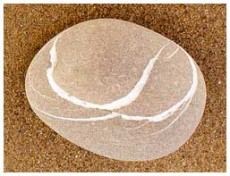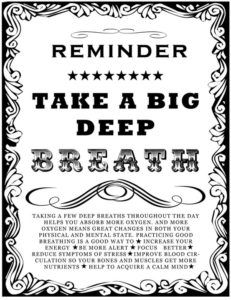Caregiving: what’s the hardest part? One answer: all you know doesn’t work. Caregiving calls for new skills and you don’t have any, maybe aren’t conscious that you need them. Your time, space and decisions were ordered, schedules set, kitchen clean. But now the person you care for crashes the tomato soup bowl on your wooden floor, the puddles and ooze seep into the cracks: your whole house smells like a Campbell’s can. You knew how to meet life but old coping strategies fail now because everything changes moment to moment. Soiled clothing, spilled milk, demands for assistance. Your person swallowed two doses of pills, or canceled, then hung up on the Hospice worker who planned to come for relief today. You try. Fix things. Get busy. Tidy up. Clean messes. Go faster. Prioritize efficiency. Be on the alert for crisis. Keep a watchful eye. Listen for accidents. Hyper-vigilance is another hardest part.
This guardedness revs up our sympathetic nervous system (SNS), the part of us that reacts to stress, that commands, “Get it done.” The SNS floors our internal gas pedal. Go. MOVE. Quick. Now. Hyper-vigilance gets us through the day, through deadlines. These stress and strain skills served human bodies when we lived on the Serengeti, each noise a threat, each scent a danger. But a shattered lunch with smelly runny soup is not an emergency. We do not need Serengeti skills for that, nor for when the commode is so ripe that every inch of us wants to jump up and dump it.
Reactivity which once saved us in the jungle, the plains and the swamps only partially helps us help others. Question: How do we work with sympathetic overload which leads to burnout? An answer: We learn to respond rather than react. We downshift. We renew ourselves by engaging our parasympathetic nervous system, (PNS) the one that says, “Stop. Apply brakes. Sloooooow waaaaay down. Release a huge sighing exhale, like the sound you emit when you plop on the couch at the end of a hectic day.” Ahhhhhhhh. Like that. As if you had just walked in the door and dropped your brief case. PHEW! Like that.
Take a mini-vacation of one breath. One deep, letting go, sighing out-breath. Before you mop the floor. Before you empty the commode. Before you toss in the filthy clothes and press “heavy load.” Or, take a few breaths so you can be responsible (response-able: able to respond) in skillful ways. You grilled chicken: she screams, “I hate chicken. I want lamb.” Deep breath. He ate the organic strawberries you bought as a rare treat for yourself. Long slow exhale. She lost the appointment card for her next doctor’s visit. Ahhhhhh. The potatoes you meant to serve are sprouting beards and you can’t leave for groceries. Pause. He yells, “You didn’t get the mail.” Relax first.
Caregiving: what’s the hardest part? Another answer: It’s chronic, could last for years, decades. Yet, so does our anchor and ally, the breath. The oasis of calm that comes from activating the parasympathetic system does not alone prevent burnout. Relieving caregiver stress is not simple. But a deep, slow, full, long exhale unwinds us. We recalibrate. As our external world seems to shrink, we can open internal space with the next deep, slow, full, long inhale. It’s not hard to do, but on overload it’s often hard to remember to do.
What’s the hardest part? Maybe the constant, frantic doing. An antidote: Small sips of being. Inner peace is an inside job.




Love it ! Thank-you
Love you. Hug you. Like that.
Yes. One breath at a time. Love to you! xoxo